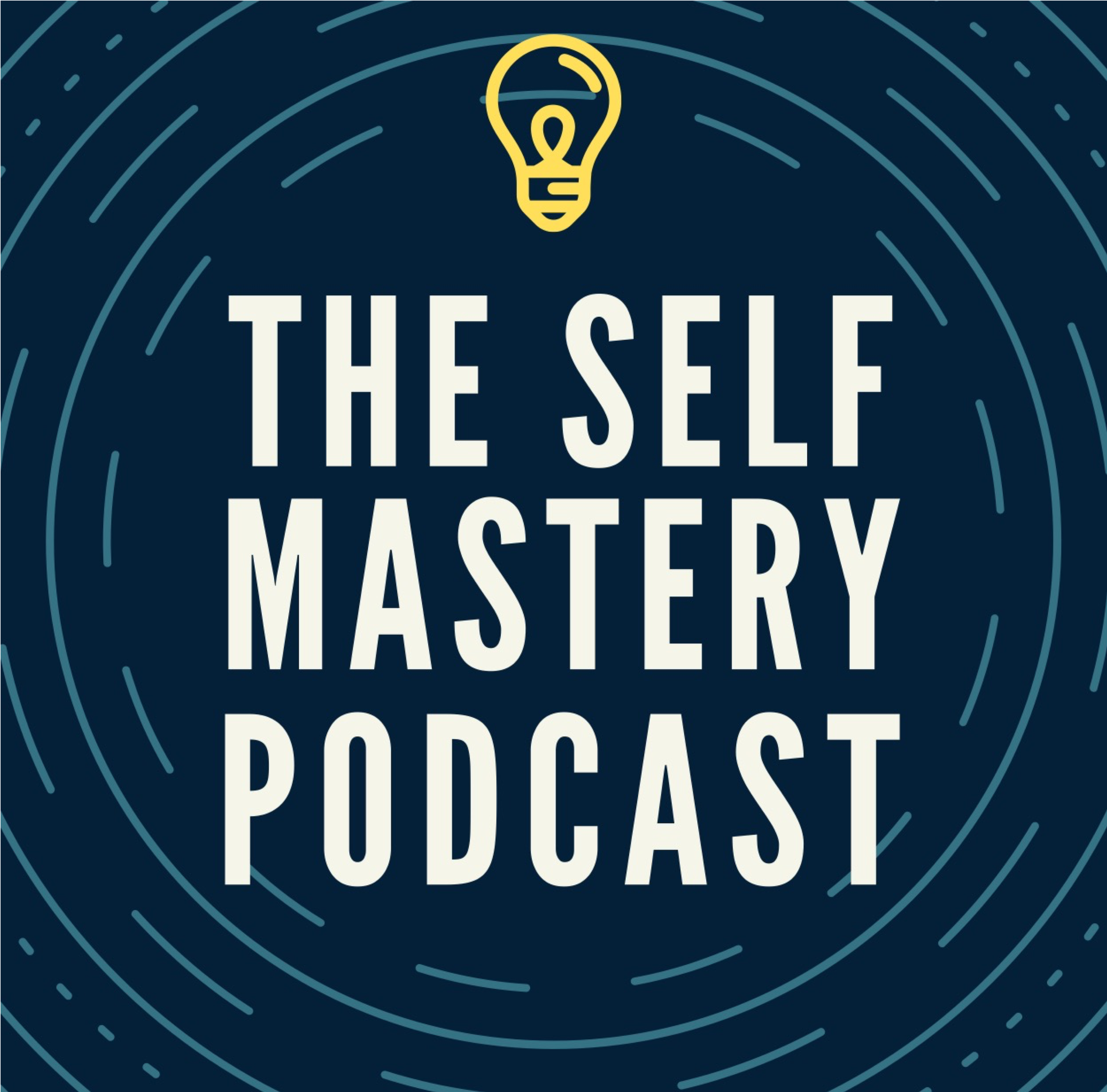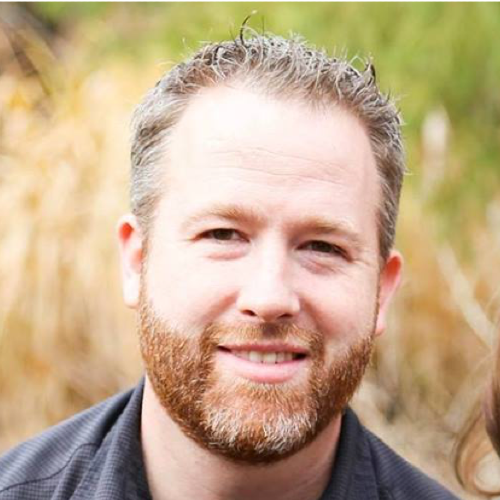Turning Pornography Slips Into Growth Opportunities
Learning to Thrive Beyond Pornography use was the greatest challenge of our life and marriage. It had rocked my self confidence, tainted all of the most important experiences of my life and become the most impossible challenge I had.
With this podcast or at https://www.GetToThrive.com you'll learn about the struggle, how to overcome pornography use, and where to find additional resources to begin to thrive beyond pornography with your spouse.
At some point I took a step away from all the 12 step meetings and councilors and started to figure out my own brain, to look at my issue as something that I had the answer to and I was going to figure it out. Here I share those lessons and give you the power to start your own journey free. Whether you struggle with unwanted pornography use or are the spouse or partner, whether you feel stuck or just don't know where to start, here I will teach you principles, tools and skills that you can use today to change how you think and, in the end, what you do.
You'll hear interviews with my spouse, with experts on human sexuality and with former and current pornography users on how you can overcome your own struggle with addictive behavior.
The Thrive Beyond Pornography podcast will bring new perspective to your struggle and keep you coming back to improve all aspects of your life. (formerly, The Self Mastery Podcast: Overcome Pornography Forever)
Transcript
Episode 266
===
Zach Spafford: [:And downward spirals that, you know, keep us stuck for days and how that particular skill is a crucial part of the growth that you need to put pornography behind you and start thriving beyond it. So many people struggling with pornography feel like every single time they slip, they've failed.
That mindset, where every mistake is seen as a personal defeat, keeps them trapped in cycles of shame and frustration. But what if I told you that those moments are actually one of the best tools for success? Here's the thing, when you step off your plan by choosing to view pornography, your immediate thought might be, I've failed, and that means I'm a failure.
This thought process often spirals into negative emotions, which can lead to trying to keep back those negative emotions by escaping them through additional porn viewing. Those of you listening know exactly what I'm talking about.
Maybe you've made a mistake by viewing porn, and then you go back to it two or three or even more times before you come clean with yourself or your spouse.
But here's a game changing insight. These moments are the best opportunities that you have to learn about what's going on for you in your brain.
It's about stepping back and observing without judgment or shame. Mistakes are your data points. And by looking at them the same way that any scientist would look at any scientific problem, you can begin to see patterns.
And these patterns give you insights into your triggers and habits, and that's where the real change starts. I want to be clear, this is an opportunity to see the problem more clearly because you're willing and able to view it dispassionately and objectively. One of the biggest mistakes too many of us make when we've viewed porn is that we try to distance ourselves from what happened as quickly as possible in order to get back to a sense of normalcy.
I'm not asking you to beat yourself up by looking closely at your thoughts and feelings. I'm asking you to look at those thoughts and feelings more closely so that you can deal with them directly and honestly. Think about it this way, when a baby learns to walk, when they fall, nobody's standing over them yelling at them, "well you're a failure because you didn't walk perfectly."
Zach Spafford: Babies use every single fall and misstep to improve by looking at what's working and what's not, and then using that information to improve their gait. And that's exactly how we need to approach our journey, whether it's overcoming pornography or mastering anything else.
One question I always ask my clients when they say I failed today is, "well, what does victory actually look like?" We often define success in unrealistic terms, like a hundred percent, never viewing porn, cold turkey starting now.
We don't, we don't take the time to learn new skills.
We don't analyze the process that we use. We don't have any additional capacity. We haven't done anything differently. It's just stop now. No excuses. And for most people, that's not possible, nor is it realistic.
But let's reframe what success looks like. Say in sports, right? Having a winning record means winning just over half the time, 51%. The best hitters in baseball only get a hit about 33% of the time. That means that the majority of the time, they actually don't succeed at getting on base. And yet, they're still considered successful.
Now, think about this in terms of pornography use. Let's say you're struggling for just 15 minutes out of an entire week. Well, that's point one-five percent of your week. It's Is that really a complete failure? There are over 10, 000 minutes in a week. And if you spent 15 minutes looking at pornography, 99. 85 percent of your week, you didn't, that's not a total loss, even if it isn't the ideal that we're striving toward,
I'm also not suggesting that we brush aside those 15 minutes, but if we can shift how we see that "failure," we'll realize that there's a lot of data that can help us improve the way we approach what's happening for next time. This mindset also allows us to recognize that small improvements consistently made can lead to huge gains over time.
For instance, if each week I can reduce pornography viewing by one minute simply by getting more clear each week on why my brain is offering me porn, learning how to deal with that particular issue directly, And then creating a habit of dealing with that issue over the next 15 weeks, I can get to my ideal in a relatively short period of time.
We can do this all while knowing that the issue that I'm dealing with Isn't just the very specific behavior of viewing pornography, but more importantly, we are looking to improve our ability to automatically and habitually respond to unwanted negative thoughts and emotions through mental and emotional flexibility.
t we're looking to create so [:It's crucial to drop the shame and sense of failure around pornography viewing. Shame is never a helpful emotion. I've never found it to be useful. It compounds the negative feelings and it keeps you stuck.
As Brene Brown has taught us, shame is "I am bad" of every single client that I've ever met with, I have yet to meet one that I believe is "bad." Instead, we need to observe our behavior dispassionately, just like a narrator watching a nature documentary. When you observe your urges and the responses to them, like a curious bystander, you're going to be able to see things clearly without getting overwhelmed by emotion.
So how do we apply this in real life?
Well, number one, set aside the shame. You're going to feel bad sometimes, and that's okay. Let's try not to double down on it by feeling ashamed, for feeling bad
Number two, be honest with yourself. You're going to have to be willing to admit where you are without minimizing or avoiding the truth.
Number three, observe your brain without judgment.
Watch your thoughts and feelings as well as the actions that you take like an outsider, as if you're narrating what's happening in a, in a wildlife film without getting emotionally involved. This is going to give you the clarity to interrupt the patterns that lead to the unwanted behavior.
This is just about getting clear about what's happening and why, if you need help doing that, you can, you know, get the clean break mini course where you learn exactly what's happening at each step during that detour cycle,
Write it down. This is to me, one of the most valuable things that you can do because getting your thoughts out of your head and onto paper helps them become real.
When you write down what you're feeling and thinking, it becomes real, you can see it more clearly, and you can deal with it as though it is external, instead of it being inside your head.
Number five, see each episode of pornography use as a learning tool. Every time you don't get the result you want, there's a lesson in it.
There's something to learn from it. These, these choices give you the chance to adjust and grow.
I want you to remember that you're going to make mistakes all along the way through this process. That is totally normal. What is important is that you use each of those choices, each of those mistakes, as a stepping stone toward mastering your habits. This is how you gain control and build the life you truly want. One step at a time.
Thanks for listening today, if you're ready to dive deeper and take control of your life, head over to my website, gettothrive. com slash work with me and sign up for a free consult. I would love to meet with you. Let's get together. Let's help you reach your goals.
and please don't forget if you found today's episode helpful, take some time and review it. It helps others find the podcast and begin their own journey of transformation. Thanks again, and I'll talk to you guys next week.




